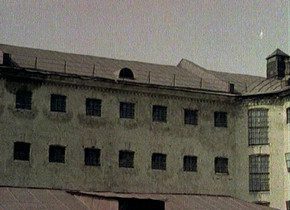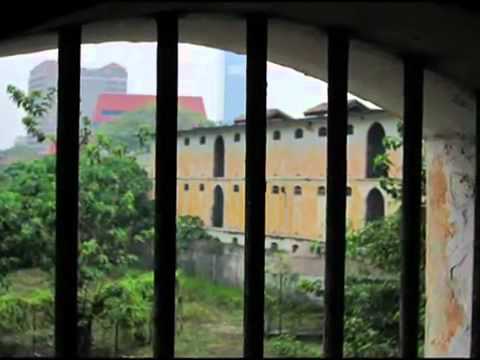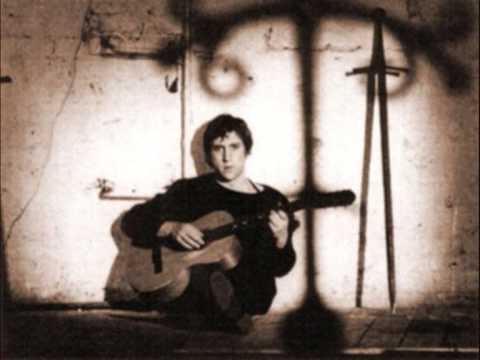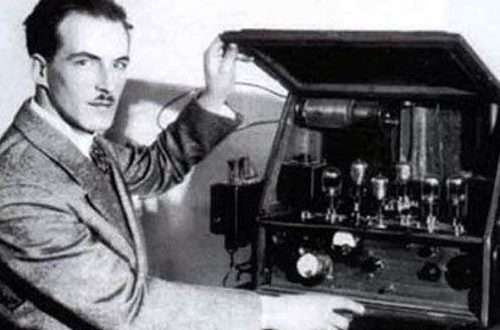
Songs of bondage, prison and hard labor: from Pushkin to Krug
 Ineradicable pity, “mercy for the fallen,” including even the most inveterate robbers and murderers, gave rise to a special layer of song. And let other refined aesthetes turn up their noses in disgust – in vain! As popular wisdom tells us not to swear off scrip and prison, so in real life bondage, prison and hard labor went hand in hand. And in the twentieth century, few people did not at least take a sip from this bitter cup…
Ineradicable pity, “mercy for the fallen,” including even the most inveterate robbers and murderers, gave rise to a special layer of song. And let other refined aesthetes turn up their noses in disgust – in vain! As popular wisdom tells us not to swear off scrip and prison, so in real life bondage, prison and hard labor went hand in hand. And in the twentieth century, few people did not at least take a sip from this bitter cup…
Who is at the origins?
Songs of bondage, prison and hard labor, paradoxically, originate in the work of our most freedom-loving poet – A.S. Pushkin. Once, while in Southern exile, the young poet took a swing at the Moldavian boyar Balsh, and blood would have been shed if those around him had not intervened. So, during a short house arrest, the poet created one of his poetic masterpieces -.
Much later, the composer A.G. Rubinstein set the poems to music, and entrusted the performance not to anyone, but to F.I. Chaliapin himself, whose name was then thundering throughout Russia. Our contemporary, singer of songs in the “chanson” style, Vladislav Medyanik, wrote his own song based on Pushkin’s “Prisoner”. It begins with a characteristic reference to the original: “I’m sitting behind bars in a damp dungeon – No longer an eagle, and no longer young. I wish I could settle down and go home.” So it hasn’t disappeared anywhere – the theme of prisonerhood.
To hard labor – for songs!
According to the famous Vladimirka, captured by the artist I. Levitan, criminals of all stripes were driven to hard labor in Siberia. Not everyone managed to survive there – hunger and cold killed them. One of the first convict songs can be considered the one that begins with the line “Only in Siberia will the dawn break…” People with a good ear for music will immediately ask: what is this painfully familiar tune? Still not familiar! The Komsomol poet Nikolai Kool wrote the poem “The Death of a Komsomol Member” to almost the same melody, and in the arrangement of the composer A.V. Aleksandrov it became the most popular Soviet song “
There, in the distance, across the river…
Another oldest convict song is rightfully considered this, a kind of classic of the genre. Judging by the text, the song was born at the end of the 60th century, then it was repeatedly sung and supplemented. Indeed, this is an oral folk, collective and multi-variant creativity. If the heroes of the early version are simply convicts, then later they are political prisoners, enemies of the tsar and the empire. Even political dissidents of the XNUMXs. had an idea about this unofficial anthem of the central.
Alexander Central, or, Far away, in the country of Irkutsk


Watch this video on YouTube
Who needs prison…
In 1902, along with the triumphant success of the social drama of the writer Maxim Gorky “At the Lower Depths,” an old prison song entered into widespread song use. It is this song that is sung by the inhabitants of the flophouse, under the arches of which the main action of the play unfolds. At the same time, few people then, and even more so today, present the full text of the song. Popular rumor even named the author of the play, Maxim Gorky, as the author of the song itself. This cannot be completely ruled out, but it is also impossible to confirm. The now half-forgotten writer N.D. Teleshev recalled that he had heard this song much earlier from Stepan Petrov, known in literary circles under the pseudonym Skitalets.
The sun is rising or rising


Watch this video on YouTube
Songs of prison inmates would be incomplete without the famous one. Vladimir Vysotsky, who rarely performed other people’s songs, made an exception for this piece and, fortunately, the recording was preserved. The song takes its name from the Moscow prison of the same name. The song has become truly folk – already because neither the author of the words nor the author of the music is known exactly. Some researchers attribute “Taganka” to pre-revolutionary songs, others – to the end of the 30s. last century. Most likely, these latter are right – the line “all nights are full of fire” clearly indicates a sign of that time – the light in the prison cells was on around the clock. For some prisoners this was worse than any physical torture.
Taganka


Watch this video on YouTube
One of the researchers has suggested that the composer of Taganka was the Polish composer Zygmunt Lewandowski. It’s enough to listen to his tango “Tamara” – and doubts will disappear by themselves. In addition, the text itself was written by a clearly cultured and educated person: good rhyming, including internal rhyming, vivid imagery, ease of memorization.
The genre has not died by the 21st century – let us at least remember “Vladimir Central” by the late Mikhail Krug. Some go out, others sit down…




